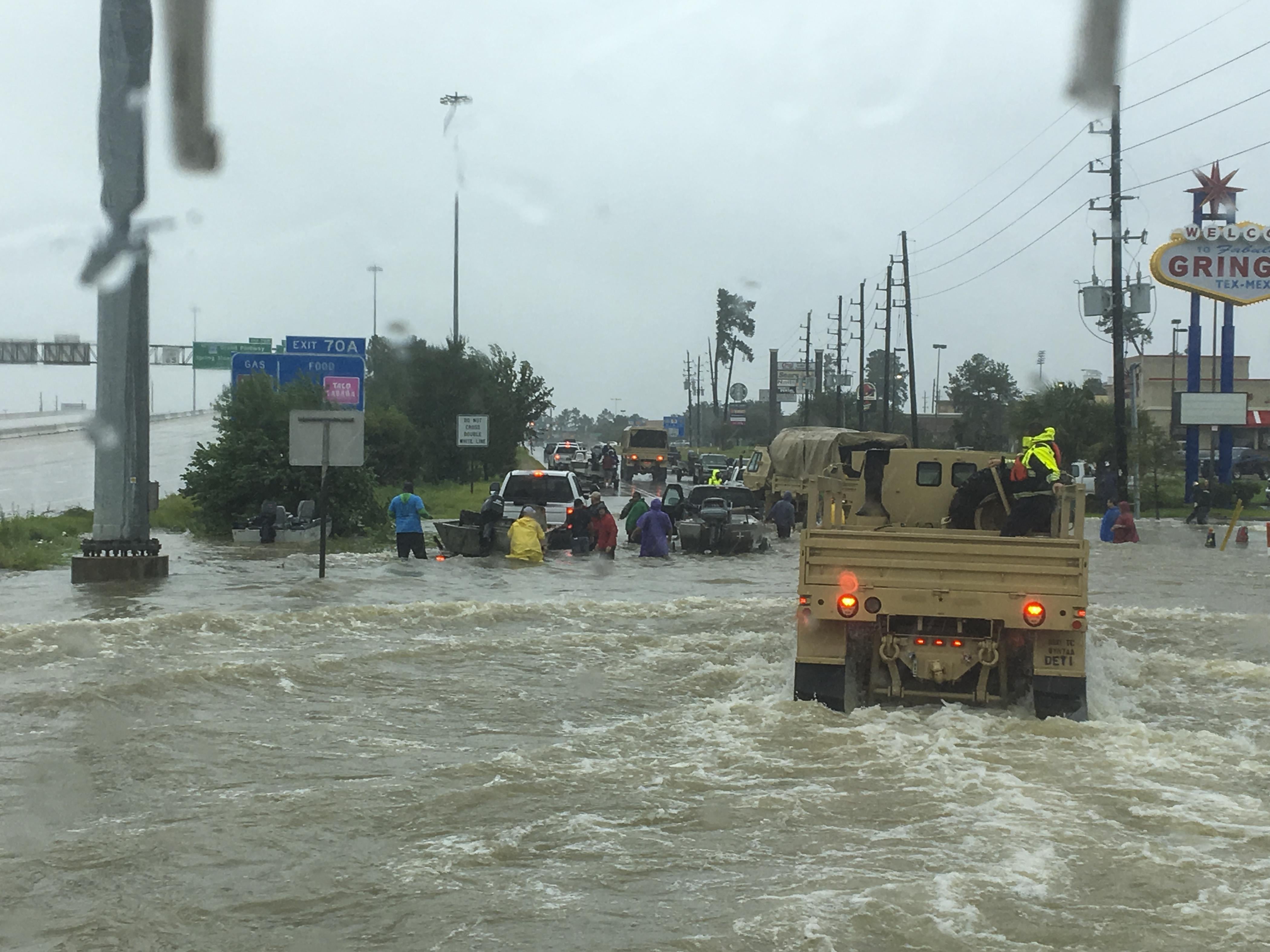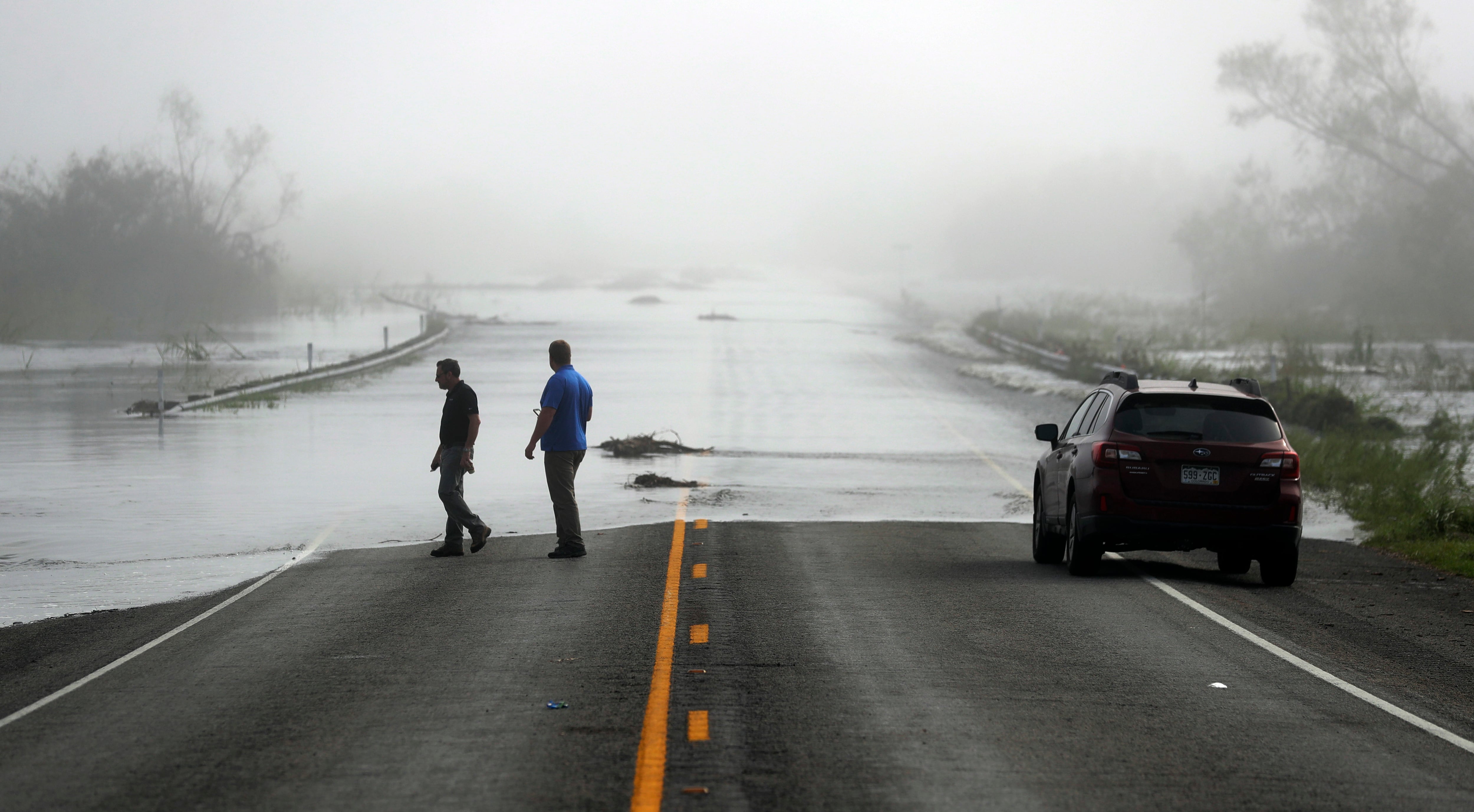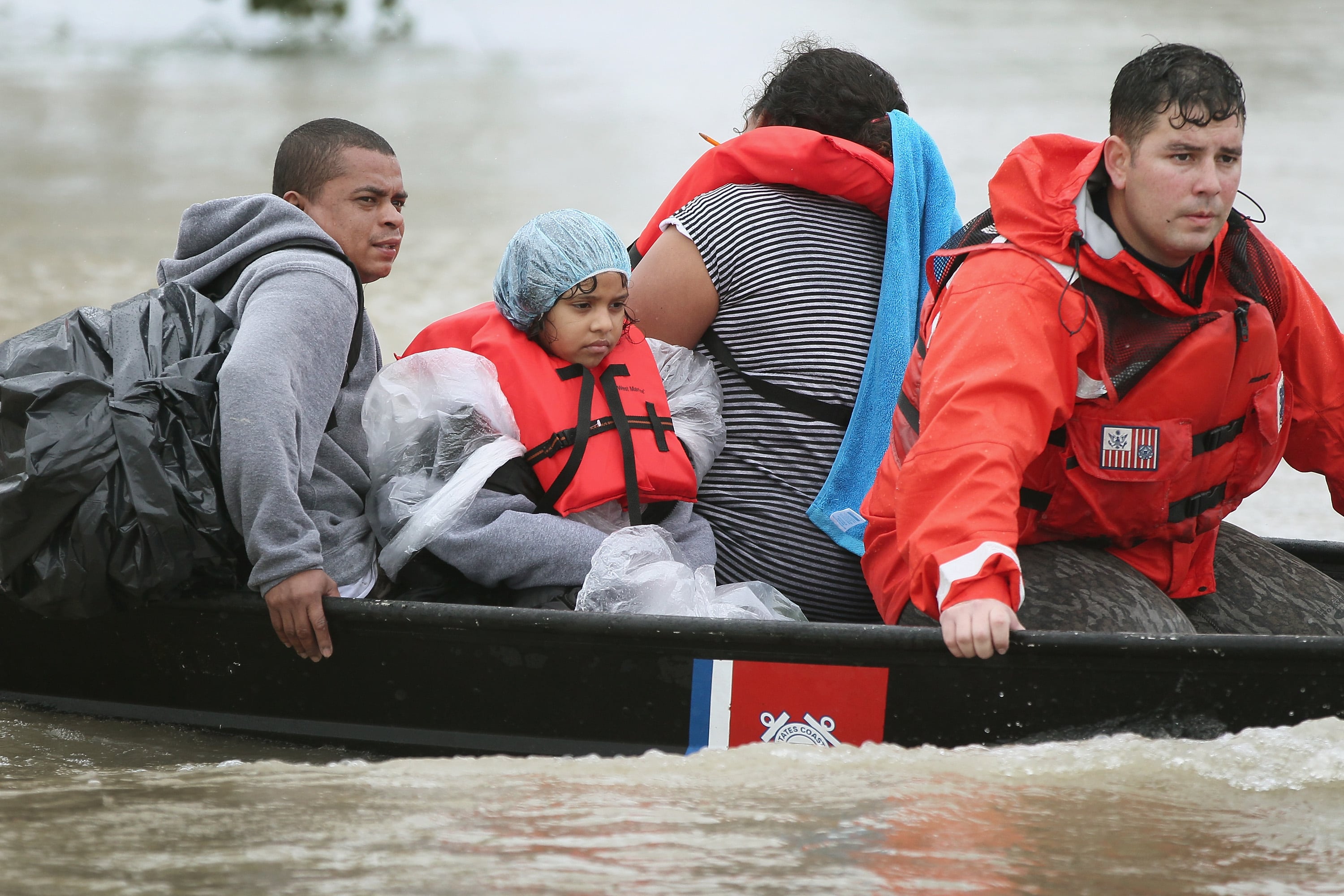If you’ve watched the coverage of Hurricane Harvey, and the rescues of thousands of people, you’ve seen the large plastic garbage bags that many of those rescued souls are carrying.
Have you wondered what’s in those bags?
What would be in your bag if you had to evacuate immediately? And what other steps have you taken to protect yourself and family, your property and finances in the event of an emergency?
Emergency preparedness is an important issue for service members and their families, said Army Maj. Gen. Kevin McNeely, director of manpower and personnel for the National Guard Bureau, during a recent meeting of the DoD Military Family Readiness Council. The country is relying on reservists more than ever, and fewer active-duty members live on military installations, he said.
Service members have to be gone in a lot of cases when their families are in the midst of emergencies such as natural disasters, whether they’re deployed elsewhere or responding to the disaster.
“They have to be confident that their family is being taken care of or taking care of themselves,” McNeely said. “It’s important that they be able to focus on their military responsibility.”
On Aug. 29, the council was discussing ways to promote community programs that help train people for disaster preparedness.
September is National Preparedness Month, a long-planned community awareness effort to encourage Americans to prepare for emergencies. Images from Texas have brought such efforts into the national consciousness.
RELATED

Military commissaries are taking note, promoting sales on a variety of items you could use to stock your emergency preparedness kit — whether the scenario is evacuation or shelter-in-place. Items on sale include weather-ready flashlights, beef jerky and other meat snacks, batteries, hand sanitizer, matches and lanterns.
Aside from stocking up on some items at commissaries, there are many things you should do to prepare your family to weather disasters of all types:
Flood insurance for homeowners. Reports indicate that most people in the flooded areas of Texas don’t have flood insurance. Homeowners insurance policies typically don’t cover flood damage. According to the Federal Emergency Management Agency, no home is completely safe from potential flooding devastation; the damage from just one inch of water can cost more than $20,000.
More than 20 percent of flood claims come from properties outside the high-risk flood zone. Check www.floodsmart.gov for more information, and don’t wait for a weather report to start the process: There is typically a 30-day wait period between the time you buy a flood insurance policy and when it takes effect.
Insurance for renters. Your landlord almost always doesn’t cover losses to your personal property if there’s a flood, fire, theft, etc. That includes government housing and the services’ privatized housing. You’ll need a renters insurance policy to do the job, but again, you shouldn’t wait: As Harvey was barreling down on Texas, we contacted two insurance companies that do business primarily with the military community, and they said they couldn’t issue policies at that point for people in areas in the storm’s projected path.
Know your emergency procedures. Sign up for communitywide or installation-wide alerts, and follow leaders’ instructions.
RELATED

Know your orders. When military family members are traveling with evacuation orders in hand, they are eligible for certain reimbursements for lodging and meals. There are procedures for submitting requests for travel advances, and for submitting claims.
Know Tricare’s policies. For example, because the Texas and Louisiana governors declared a state of emergency to deal with Harvey, emergency refill procedures are in place for the affected counties through Sept. 15. Referral requirements are waived through Sept. 30.
Make an emergency communication plan. A friend or family member who lives in another state or region can be the contact point so that family members dispersed locally can stay in touch.
Document your property. Take cellphone videos of each room, describing items as you go. Perhaps take extra pictures of items and appraisals or other documentation, and load them on a disc or thumb drive, or use cloud storage. Take additional videos if you’re still there when flooding happens; and when you first return to your home, to record the damage.
RELATED

Know your resources. Show each family member who is old enough how to turn off electricity, gas and water at the main switches. And always keep the gas tank in your vehicle at least half full.
FILL THAT BAG
Items you should have ready for a short-notice evacuation:
- Documents. Some can be put aside now, in a waterproof container: Passports, birth certificates, marriage license, Social Security card, shot records, insurance policies, important medical or military information and documents, and important phone numbers. Others you’ll have to grab as you go: Drivers’ licenses, military ID card, checkbook, debit and credit cards, and so on. Make a list.
- Cash. You’ll need cash on hand if there’s no power, no working ATMs, no writing checks or using any sort of electronic payment at stores. Put some away a bit at a time, maybe $20 a week.
- Medicine. Keep at least a week’s supply of any medicine on hand, and keep a current list of specific illnesses, allergies and medications, including dosages.
- Goods. If you’re leaving without a vehicle, you’ll be limited to what each family member can carry. You’ll want water, nonperishable food, clothes and shoes, toiletries, first-aid supplies, a cellphone charger, a battery-operated radio and batteries. If you’ve got your car, FEMA recommends bringing at least three days’ worth of food and water (one gallon per person per day), and consider sleeping bags and blankets.
More information and suggestions are available at www.fema.gov and www.ready.gov.
Karen has covered military families, quality of life and consumer issues for Military Times for more than 30 years, and is co-author of a chapter on media coverage of military families in the book "A Battle Plan for Supporting Military Families." She previously worked for newspapers in Guam, Norfolk, Jacksonville, Fla., and Athens, Ga.




